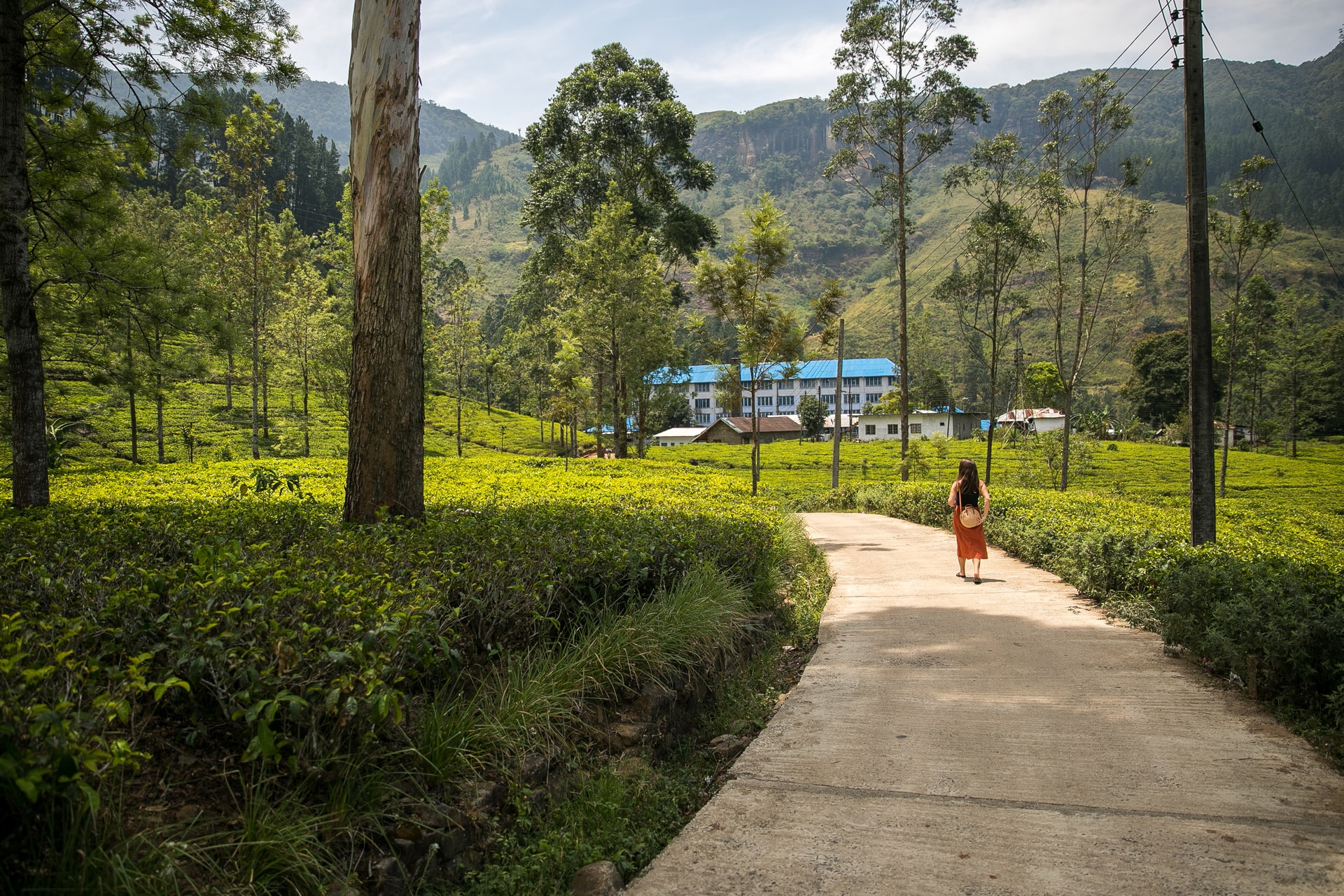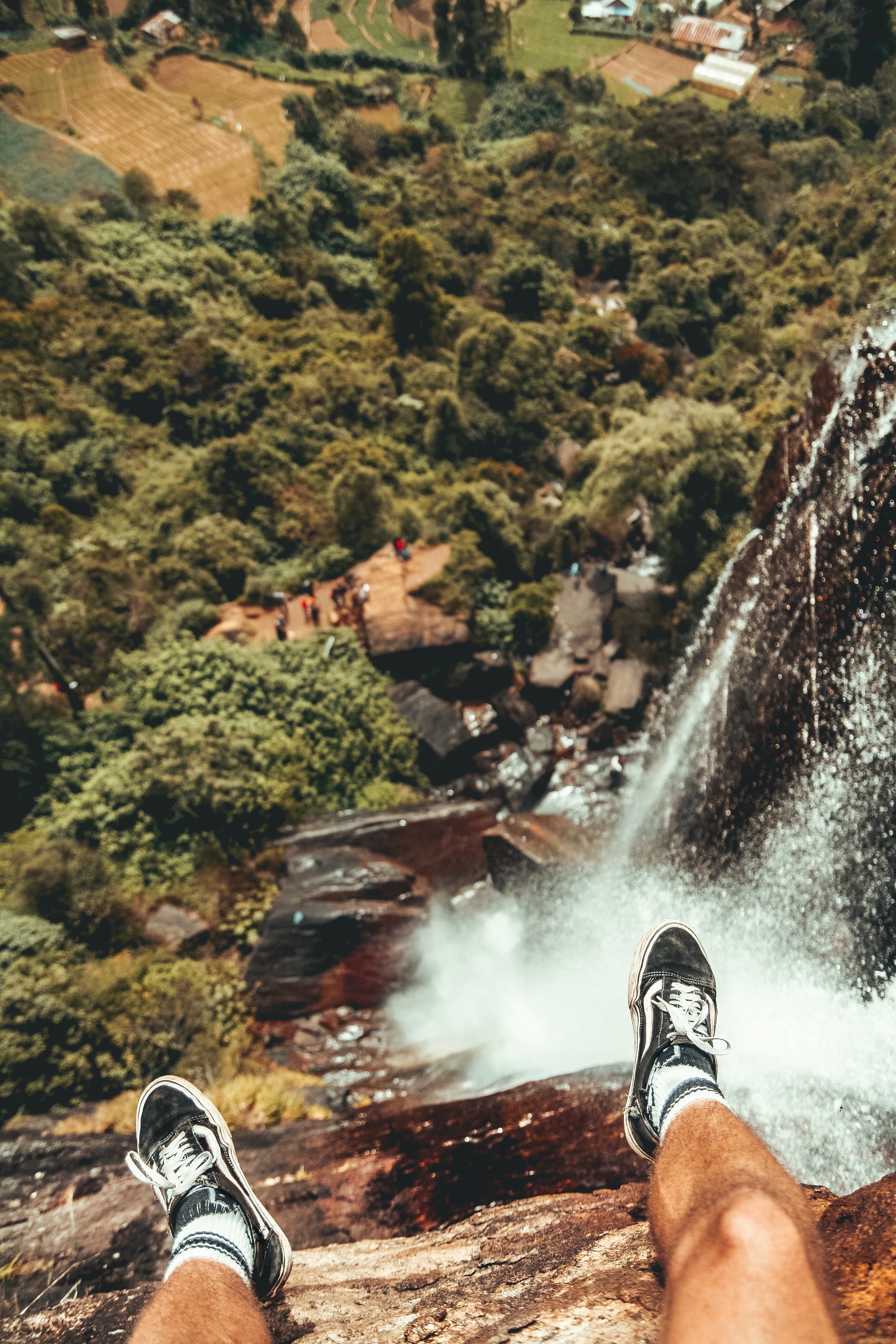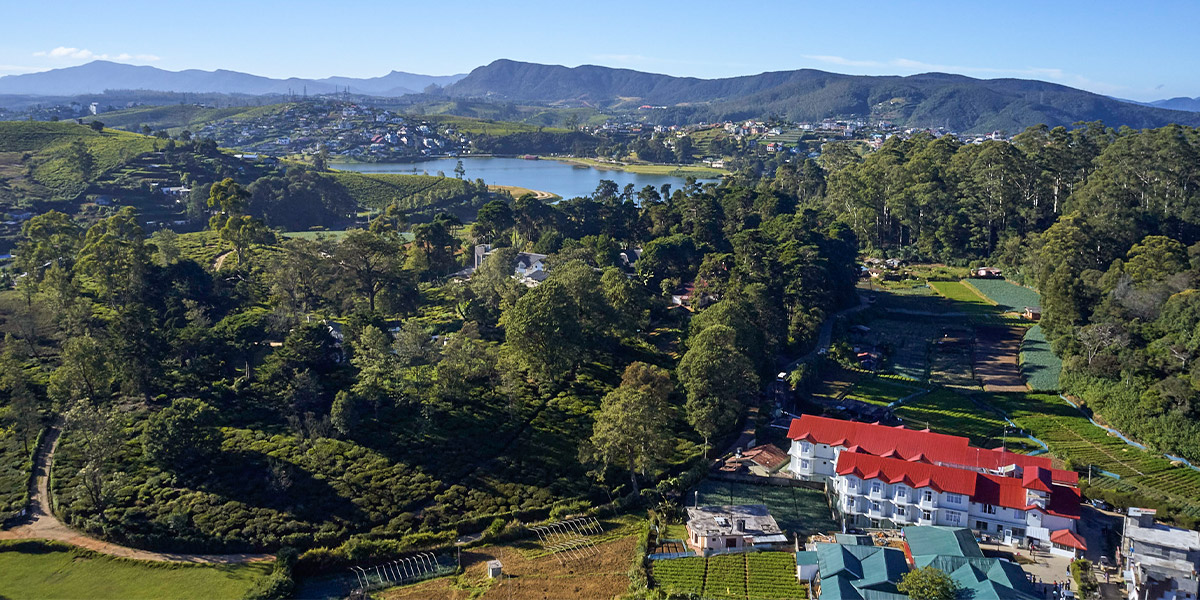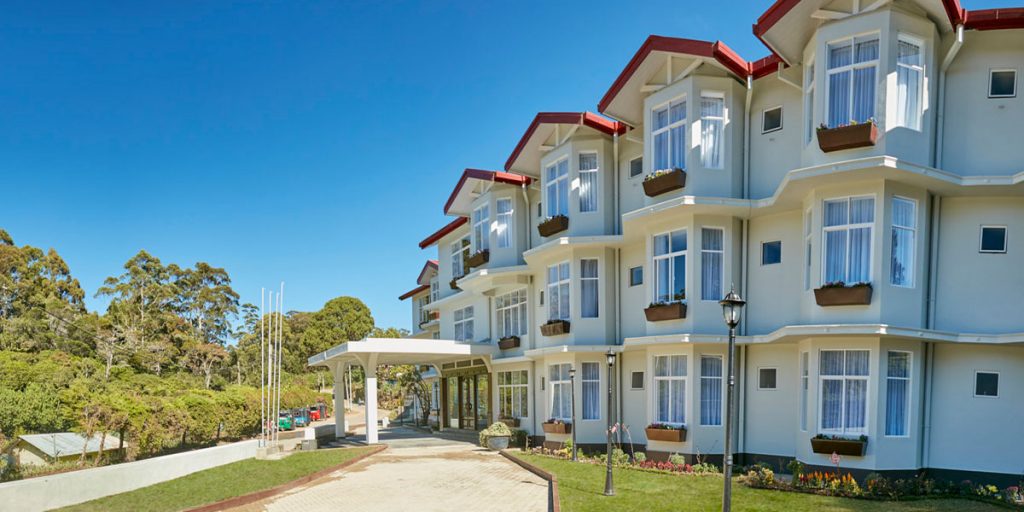Little England is the name given to Nuwara Eliya. You will at once see why when you visit this town because the buildings you see in this area, the climate, and everything else is very much similar to an English setup.

Nuwara Eliya Water Falls
Nuwara Eliya is an area blessed with beautiful waterfalls. Glen Falls, Lovers Leap, and Ramboda Falls are just some of them. To witness the beauty of some, you will have to hike a little, but the views are astonishing!
Tea Bluefield Tea Factory
This region has a lot of tea estates, from where the world-famous tea brand ‘Ceylon Tea’ was originated from. During your tour, head to the Bluefield Tea Factory and enjoy an impressive cup of tea after a detailed factory visit.
Horton Plains National Park
Although this National Park is located 30km away from the city, it is worth a visit. You will find the World’s End here at the Horton Plains. It’s a bit of a long hike, but you are sure to enjoy it!
Where to stay in Nuwara Eliya?
Since it’s a very touristy area, you don’t need to worry about options for accommodation in Nuwara Eliya. Hotels such as Galway Heights are available with world-class services to welcome you for a blissful holiday.


